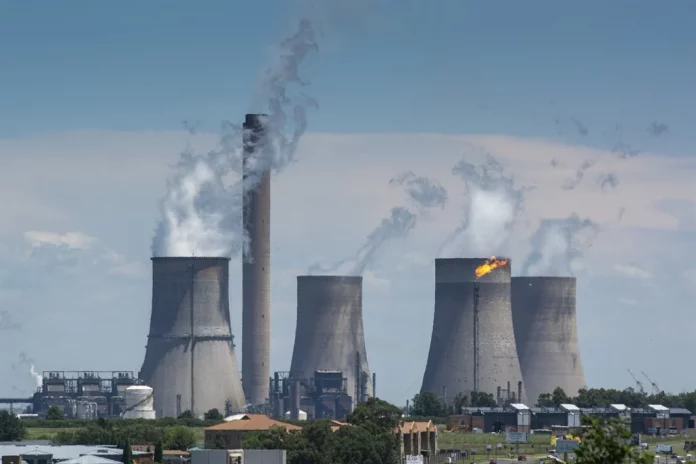Most African countries are coal-free; however, South Africa still relies heavily on the fossil fuel for electricity production, a report shows.
Independent non-profit think tank Ember last week issued its Global Electricity Review 2022, which showed that globally clean energy sources accounted for 38% of electricity production, outweighing coal at 36%. Wind and solar are the fastest-growing sources of electricity and accounted for a tenth of global electricity production in 2021.
Domestically coal accounted for 84.4% electricity production in 2021, according to the Ember report. As a result, South Africa’s emissions in 2021 from electricity production still outpaces other African nations like Egypt and Kenya.
Clean energy sources accounted for only 13.7% of South Africa’s electricity production.
The report further highlighted that electricity access is still a problem across the continent.
“Most of the world’s population still without access to electricity is in Africa. For those that do have access, it’s unreliable, and use per person is far lower than the global average,” the report read.
Africa accounts for 18% of the global population but only 3% of the world’s electricity generation.
While electricity demand is growing, clean electricity growth to meet that demand is slow.
African nations might not be heavily dependent on coal, but they still rely on another fossil fuel – gas.
A third of Africa’s electricity demand growth in the past five years was met with renewables. The other two-thirds of demand growth were met by gas, the report read. While gas was always prevalent in northern Africa, it is becoming a more common energy source across the continent, the report added.
Domestically, there are plans to increase reliance on gas as a transition fuel to balance the electricity system as the country incorporates more renewables. Civil society organisations and other environmental activists have objected to and even legally challenged gas and oil exploration.
Most recently, West Coast fishing communities won a court battle to block a seismic survey off its shores.
However, Mineral Resources and Energy Minister Gwede Mantashe has spoken out against those objecting to the development of the oil and gas industry, which he believes will boost investment in South Africa.
The Ember report indicates that to limit global temperature rising beyond 1.5 degrees Celsius, in line with the Paris Agreement on climate change, South Africa must rapidly transition out of coal generation, and northern African countries must rely less on gas power generation.
Globally wind and solar energy need to grow at 20% every year until 2030 – which equates to their average growth over the past decade.
Solar and wind are quick to deploy and are cost-competitive. Countries such as US, Germany, UK and Canada intend to shift their grids to be dependent on clean electricity within the next 15 years, the report indicated.
Source:News24.com















